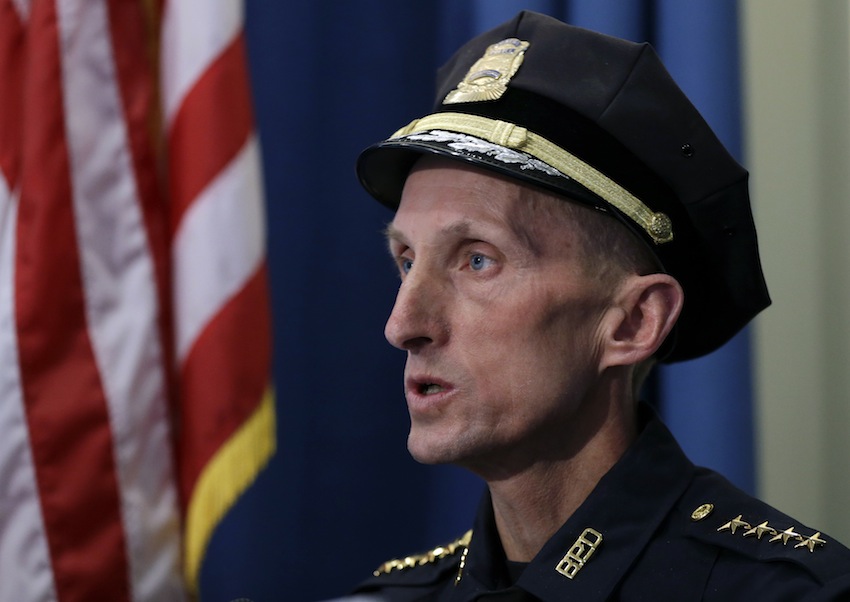BPD Starts Assigning Police to Body Camera Program Today

Photo via AP.
After not a single police officer volunteered to take part, BPD began assigning officers to participate in the city’s long-delayed body camera program on Tuesday.
Speaking with Boston Public Radio Tuesday afternoon during a regularly scheduled sit-down, Police Commissioner William Evans says he and Mayor Marty Walsh met with police union leadership last night, and began the involuntary registrations today. Training is scheduled to begin next week.
Officers will be selected randomly with oversight from a team led by Rutgers University Prof. Anthony Braga, Evans says. He still anticipates the six-month pilot program will start at the beginning of September.
“We had no input to who was chosen,” he says. “There’s officers in there, you know, all ages, all races, from five sections of the city and our Youth Violence Task Force. And so Anthony chose them and, you know, based on what he can do for a productive study, so I’m hoping September 1st, but you have seen the challenges on trying to get this done. … If I could snap my fingers and make this happen I would, but I knew there were a lot of challenges.”
Evans also addressed the possibility of a legal challenge from unions in the near future.
“They’ll probably challenge us, that we’re going to assign them, but that’s what the union does: They look out for their membership,” he says.
When asked on air, he downplayed concerns about a coordinated effort on the part of unions to dissuade police from volunteering, saying instead that police are simply reluctant to sign on. He also cited tension in law enforcement amid street protests for police accountability following police shootings, and violence directed at police officers, as well as historical precedent.
“If you read any book on police history, police are one of the main organizations that are very resistant to change and they’re always suspicious of what, unfortunately, the organizations are up to,” Evans says. “And I think if they engage in the practice, like even the body cameras, they’ll realize the benefits to it. But police agencies nationwide are all resistant to change and I think that’s what’s happening here.”


